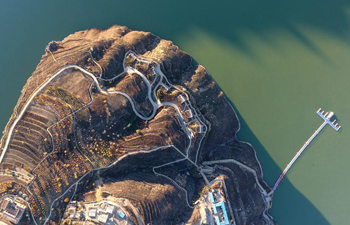DUBAI, Dec. 11 (Xinhua) -- Investors, hospital managers and medical professionals said Monday that medical technology and international cooperation could help the Middle East and North Africa (MENA) region lift healthcare service to a new level.
According to Badr Jafar, CEO of multinational conglomerate Crescent Enterprises from the United Arab Emirates (UAE), the region needs an additional 2,000 hospitals if it wants to reach the standard of the OECD (Organisation for Economic Cooperation and Development) of 4.8 hospital beds per resident.
"We are faced with a shortage of quality healthcare professionals in MENA and there is a need for 360,000 new hospital beds by 2020," said Jafar.
There is also positive sides in the region, with the precision medicine, mobile diagnostics and the implementation of robots in the healthcare sector gaining more acceptance across MENA and have increasingly helped to bridge the healthcare gap, added Jafar.
Maryam Matar, founder and chairperson of the UAE Genetic Diseases Association and Undersecretary, agreed by saying that the genetic research and diagnostics had improved tremendously in the region since more and more international collaboration had been witnessed in recent years.
The healthcare market in the UAE is valued at an estimated 17 billion U.S. dollars and it is expected to reach 28 billion dollars by 2021, according to research and business advisory firm Grant Thornton.
UAE investors are also actively seeking cooperation with foreign institutions to acquire expertise and successful experience in fields including artificial intelligence, data analytics and robotics.
Crescent, for example, has invested a total of 16 million dollars into the U.S. medtech companies ColubrisMX and XCath, both of which specialize in the application of robotics to neurosurgery.
On the other hand, it is widely argued that the development of the use of artificial intelligence in healthcare would not replace the role of the doctors.
"People should not worry about the competitiveness of a doctor amid the rise of artificial intelligence, as digitization can only help the diagnostics and therapies become more efficient and transparent," said Majdi Younis, regional director of Ireland's medtech provider Medtronic.

















